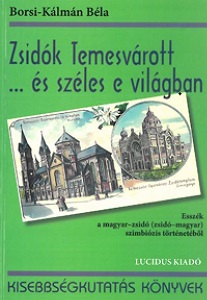
We kindly inform you that, as long as the subject affiliation of our 300.000+ articles is in progress, you might get unsufficient or no results on your third level or second level search. In this case, please broaden your search criteria.

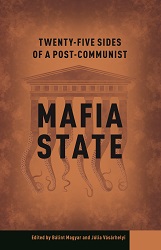
Network culture and related informal institutions are widespread phenomena in Central and Eastern Europe (CEE). The network character suggests that not only two but many interconnected actors participate in informal exchanges and circulate different forms of resources through this widespread social infrastructure. Under the communist shortage economy,informal networks were important survival tools for everyday citizens to“get things done.” The relationship structure of family members, friends,acquaintances, ex-classmates, colleagues, and neighbors provided effective channels to obtain different forms of resources, from travel vouchers through home phones and cars to university admissions. Of course, these types of informal networks existed and still exist all around the world but in communist CEE countries they were more widespread compared to their Western counterparts.
More...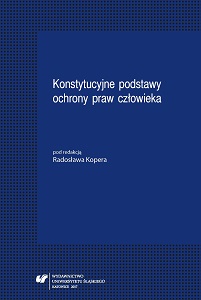
The right to a fair trial is guaranteed by Article 45 of the Constitution of the Republic of Poland, as part of the regulations concerning the freedoms, rights and duties of the citizen. The regulation is twofold in nature and has been subject to constant changes. The placement of the discussed regulation in Chapter II of the Constitution gives it the rank of a fundamental right. The functioning of the contemporarily instituted mechanisms which guarantee the access to the right to a fair trial remains predicated to a certain extent on the experiences acquired in the process of the changes in law and society. These changes have certainly exerted a fair amount of influence on the functioning of the mechanisms granting the right to a fair trial.
More...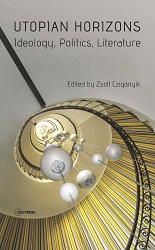
Utopias have a controversial relationship with organized religions. As they are by definition seeking to present a social vision of a human community organized along significantly different rules and conventions than the author’s contemporary society, they implicitly or explicitly challenge the norms and habits of existing societies, including the moral code and spiritual goals, which are predominantly influenced by the majority religion of that particular community. In other words, utopias have an inherent heterodox tendency, which renders them suspect in the eyes of religious authorities. The Catholic philosopher Thomas Molnar summarized this phenomenon succinctly when he described utopias as “perennial heresies” in relation to doctrinal orthodoxy: “The important utopian writers are heretics from the point of view of Christian doctrine; they want to restore man’s original innocence—his knowledge and power—and, to achieve this objective, they want to abolish original sin and start with unspoiled beginnings.”
More...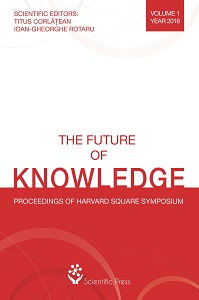
The dynamic of changes of the International Society increased dramatically in the past 50–100 years. Fundamental changes touched also the domain of International Law, as created after 1945 by the relevant international actors through the United Nations, Law which regulates the current international relations. Norms and fundamental principles of International Law, considered for a long time as immutable, are subject of serious challenges generatedbynewbalancesofpowerintheworld, thecomplexprocess of Globalization, by terrorism, illegal migration etc. Temptations for instance to revert back the fundamental “acquis” of the European Union, such as European integration, fundamental rights and liberties, the moral Judaic–Christian foundation of Europe etc. into an updated version of a Europe of sovereign states on Westphalian model became a reality. The reconfiguration of the Global system and the future of knowledge from this point of view will imply a serious effort for the renewal of the fundamental legal concepts, but mainly a new quality and vision of the international political leadership. For generating once again progress, these changes should nevertheless not renounce to what was fundamentally acquired, to the essential principles and values embodied by the Humanity in the new born post–War society and its International Norms.
More...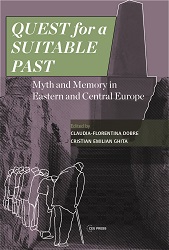
If we examine the narratives of the Croatian past as they have been recorded throughout history, we notice that in all periods, from the earliest attestation of the ethnonym “Croatian” in the ninth century until the most recent times, mythology played an important role in the creation of Croatian national memory and thus in conceptualizing Croatian self-identity.The first two such myths, regarding the very origins of Croats, were written down by Byzantine authors, particularly Constantine Porphyrogenitus in his "De administrando imperio (Porphyrogenitus 1949, 122–153)". Others were composed later, in the fourteenth to sixteenth centuries, while several were the result of nineteenth-century professional historiography.
More...
Our study seeks to describe and analyze the changes that occurred in the “symbolic repertoire” defining Polish attitudes to German heritage in Poland after 1989. It addresses the question of the Polish myth of the“wicked German” that haunted and still haunts the local communities of western and northern Polish territories (which under communism were called the “Regained Lands” or/and “Western Borderlands”), where Polish and German inhabitants coexisted before World War II.
More...
The present chapter proposes a new interpretive scheme for making sense of the biographies of communist leaders, with particular attention to the underground period, when communist activities were illegal. I will discuss three types of source, each with its merits but also interpretive pitfalls:the myth-biography (Costea 2008), the autobiography, and the personal files compiled by the interwar secret police (Siguranţa).
More...
The Romanian Communist Party (RCP) introduced what was called “egalitarian legislation” in an effort to meet the demands of Marxist-Leninist doctrine. Despite the legislative measures, the percentage of women within the RCP remained, for the first three decades of communism, one of the lowest among the communist countries of Central and Eastern Europe,comparable perhaps with that of Yugoslavia (Tomšič 1980). To encourage women to join the party, in the mid-1970s, Nicolae Ceauşescu’s regime introduced the principle of mandatory quotas for women, as members and candidates, in all party structures. A few women were even catapulted into positions of leadership (without any professional merit).
More...
After the fall of communism in December 1989, a feverish period of political and social changes ensued. A new political order took shape, instituted by and instituting a new social imaginary. In the process, old myths were brought back to life in order to give meaning and significance to the new reality, as well as to determine political and social cohesion and coherence.This chapter looks at the structures of the post-communist social imaginary in Romania through the lenses of the mythology constructed to make sense of the past and to provide significance to the present.
More...
This text starts from a "mytheme", “Bulgaria under the yoke,” brought into the spotlight on the occasion of two events, in 2006 and 2007. Both cases are about historical memory and the debates on memorial laws, legislation on the memory of historical events similar to the laws against Holocaust denial.
More...
This chapter is the result of a long period of research on the “parahistorical”discourse in Bulgaria, particularly that related to Proto-Bulgarian studies, one of the major fields in Bulgarian historiography, loaded with mythological elements, since its emergence in the nineteenth century.In the course of preliminary research, I encountered very similar manifestations in many historiographical and “parahistorical” publications throughout the region. Thus a comparative study of a number of paradigms frequently encountered in this type of publication would enable meto create a framework of interpretation for this phenomenon and would provide an answer to numerous questions. It would also create a typology of the messages propagated by these theories and help identify its intended audience. Moreover, such a study would help to understand the reasons behind the popular success of the “parahistorical” discourse and even its political influence among certain nationalistic organizations and circles.
More...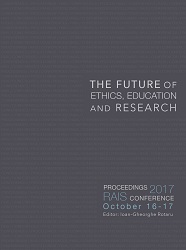
Prison radicalization is a global concern particularly in the moderate Muslim countries those are under threat for violent extremism by Islamist militant.Though the aim of prison is to protect society by confining offenders in facilities that are supposedly safe, humane and secure and to ensure that offenders are actively participating in programs that will assist them in becoming law-abiding citizens when they return to their communities. But prison settings present both risks and opportunities with respect to violent extremist offenders. Poorly managed detention facilities of any types could become potent incubators of radicalization though it is not the only place where violent extremist radicalization occurs. Bangladesh is one of the countries which is facing threat by Islamist militant. The law enforcement situation, democratic practice, injustice and discrimination among the different classes are setting fuel to become people radicalize. The prison situation of Bangladesh is very worse and it may become a hub for recruitment and brainwash place for Islamist militant. The key objective of the study is to assess the realities of prison radicalization in Bangladesh and the effectiveness of deradicalization programs. Based on the objectives the study has designed on qualitative approach.The data was collected via using a semi-structured questionnaire exploring the concept of radicalization, prison radicalization, process, key factors and ways to prevention from both from primary and secondary sources. The paper will give a real scenario of prison of Bangladesh, problems, management system of captured Islamist militants and interventions for deradicalization.
More...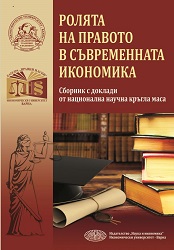
The report looks at EU and national legislation concerning the imposition of financial corrections.
More...
The report analyzes the peculiarities of using of leave and the related to it compensation in the hypothesis of adoption and accommodation of a child according to Art. 26, 1 of the Child protection act. It examines in analytical order the specifics of granting of leave, procedures and the relevant regimes as well as the particular insurance compensations for the risks and the related to them stages. Comparative legal are examined foreign legislative settlements in the aspect of their parallel to the actual national regulation and concerning the peculiarities and suitability of the accepted normative solutions.
More...
Along with the basic educational and scientific research activity the higher schools may develop economic activity, directly related to the basic activity. The report handles the legal aspects of the economic activity of the higher schools analyzing the Higher education act after the amendments and supplements dated 01.03.2016. The accent is put on the economic activity of the public higher schools in their capacity of budget organizations.
More...
The report analyzes the public procurement as a legal mechanism for the lawful spending of public funds. The accent is on the main principles in the Public procurement act, regulating their conducting according to the law – equality and non-admittance of discrimination, free competition, proportionality, publicity and transparency. On base of the analysis are made conclusions, marked actual problems and contemporary tendencies.
More...
The report examines the normative link between the municipal budget and the municipal development plan in the context of achieving better local economic development.
More...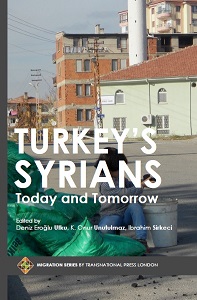
In Turkey, based on Geneva Convention in 1951 and Geneva Protocol in 1967, only those who come from European countries can be accepted as “refugees” by the government due to a geographical limitation. However, because of the increase in number of refugees in 1990s, a 1994 regulation revised the national law which was adopted in 1961.
More...
Conflicts, tensions, discomforts, dissatisfaction and frustration over resources and representation are feeding into the perception of human insecurity around the world (see Sirkeci, 2003, 2006; Sirkeci and Cohen, 2016). These individual level insecurities meet national level insecurities and securitisation of migration and migration policy is simply a, somehow inevitable, side effect. Turkey, once known as a source country for mass labour migration, is now firmly placed on the map of immigration destinations marked by over 3 million Syrian refugees and about half a million refugees from other parts of the world. The country has also been in the receiving end of sizeable numbers of returnees and immigrants from the traditional destination countries of Turkish emigrants such as Germany as a result of emerging cultures of migration over these corridors (Cohen and Sirkeci, 2011; Sirkeci and Zeyneloglu, 2014).
More...